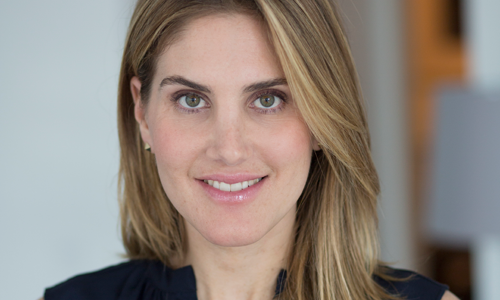 Eat Empowered
Eat Empowered  Emotional Eating
Emotional Eating  Wellness Advice from Experts
Wellness Advice from Experts
Manage Emotional Eating in 5 Smart Ways, According to Wellness Pros
By Emma StessmanHome » Eat Empowered » Manage Emotional Eating in 5 Smart Ways, According to Wellness Pros
Let us fill you in on a little secret: almost everyone—even your favorite wellness expert—deals with emotional eating, whether it’s reaching for a bag of chips when stressed or an extra slice of cake when celebrating.
RELATED: Why You Will Never Have a Perfect Relationship With Food (and That’s OK)
The difference is that while top pros still occasionally engage in an emotionally-driven indulgence, they also have their own smart strategies at the ready for dealing with emotional eating.
Hearing about some of the approaches experts use might help you learn to better recognize and cope with your own emotional eating behaviors, especially since there’s no one-size-fits-all solution. (Emotional eaters come in many different forms—from angry pizza bingers to sad snackers.)
Keep reading, below, to hear what triggers emotional eating for some of our favorite wellness experts and the go-to strategies they use to manage it.
(Featured Photo: Shutterstock)
How Wellness Experts Prevent Emotional Eating
-
Lara Metz, RDN, CDN

Founder, Lara Metz Nutrition
I try not to eat when I am feeling emotional, but sometimes the stress and exhaustion from a long day at the office followed by time with the kids and family responsibilities put me into a tailspin … and that cake just starts looking better and better!
When I feel myself being driven by emotions rather than intuition, I have several go-to strategies. If I am at home, I always take a warm bath with a few drops of an essential oil. I use lavender oil, which has been shown to reduce anxiety and improve sleep, or vanilla, which can act as a natural and mild sedative. Otherwise, I use a meditation app to clear my mind or make a list of everything I need to do, which can help organize and ground me. I may even just spend 10 minutes petting my dog, which research has shown can help lower heart rate and release endorphins.
All that being said, there are times when I do just give in to my cravings, but I try to make it a conscious indulgence, always plating my food and being mindful of portions. I won’t eat an entire cake, but I will take a small slice or choose a substitute like a piece of dark chocolate or a Soozy’s chocolate muffin, paired with an herbal tea.
-
Kelsey Patel

Spiritual teacher and certified Reiki master
When I go home and visit my family in North Dakota or sometimes when I visit my siblings in Minnesota, it triggers emotional eating. There’s something about home and being with my family that suddenly makes me eat without always paying attention to what I’m eating. It’s like I don’t want to inconvenience anyone else or stand out because I want to eat in a different way.
So, I make sure I create time for meditation, some type of movement and maybe some mantra exercises to remind myself of my own energy, connect to my breath, and deeply love myself and whatever it is I’m needing.
-
Keri Glassman, RD, CDN

Founder, Nutritious Life
My biggest emotional eating trigger is probably fatigue. When I’m run down and tired, I get hungry and crave sugary, heavy, or salty foods like cookies, chocolate or chips. I try to conquer this by first being aware that the issue is that I’m exhausted and I really just need a nap–sometimes simply being aware of the “why” helps me make a better choice.
I also embrace it. So, instead of saying, “No, I’m not going to have those chips,” and then giving in and eating out of the bag my son brought home, I say, “I know I really want that salty, crunchy thing and that is totally OK, but how can I add that to my meal or snack in a slightly healthier way?” Then … this is the important part … I plate a little guacamole with a portioned out amount of healthier chips (I’m loving Forager’s right now) and some sliced veggies.
Want to get more of Keri’s strategies? Enroll in our Emotional Eating course to learn more!
-
Lisa Hayim, RD

Founder, The Well Necessities
I’m not going to lie and pretend I get this right every time. Sometimes I fall prey to emotional eating, and I think that’s OK. I don’t get mad at myself when I do. I sympathize and understand that in that moment, I was just trying to make some sort of inner pain go away.
I am VERY aware of my triggers, which is the first step to getting better at dodging them. Before I recognized that procrastination was a time I turned to food, I was on autopilot. I have become aware that sometimes I put off challenging tasks because I don’t trust I can actually do them. With that knowledge, I can better fight off those lies I tell myself and jump to the task. My other trigger–having nervous energy around me—means that I get uncomfortable when I feel others are uncomfortable. I take on their energy and feel out of control. It takes a lot of self-talk to recognize that I am only responsible for me. I may even remove myself for a moment to gain composure. Simple things like square breathing or forcing my shoulders to lower help me reset!
RELATED: Emotional Eating vs. Eating Disorders: How to Tell the Difference
-
Pamela Salzman

Extreme emotions trigger emotional eating for me. Whether I am nervous, super stressed out, or really happy and in celebration mode. If I’m under a big deadline or I’m worried about one of my kids, I start eating to calm myself down. When I’m super excited or celebrating, I’m probably with other people who are pressuring me to partake in whatever they’re eating.
I know myself and what I am capable of eating in these situations, and I think that’s key. I know that, while I can tell myself it’s going to be one scoop or one slice, it can spiral out of control very quickly. So, I either have a cup of tea with stevia and go upstairs away from the kitchen until the feeling passes or allow myself a measured amount (for example, 1 scoop) of the craving and, again, walk away from the food until my emotions have settled down. When I’m out with friends, I try to ask myself if I’m actually hungry or just getting swept up in the energy of everyone else.
If you’re interested in learning more about emotional eating, check out our four-part video course on Emotional Eating, now!
Emma Stessman is a New York-based writer. She is an editorial assistant for Shop TODAY, a social media enthusiast, and expert popcorn maker.
RECENT ARTICLES

Want a sneak peek inside the program?
Get FREE access to some of the core training materials that make up our signature program – Become a Nutrition Coach.
Get Access"*" indicates required fields













































































































































































































































































































































































































































































































































































































































































































































































































































































































































































































































































































































































































































































































































































































































